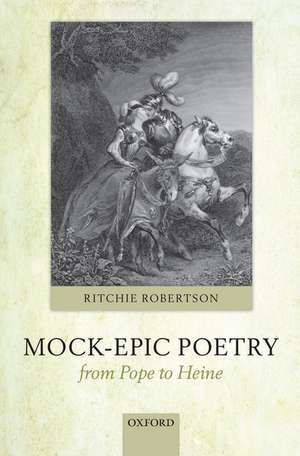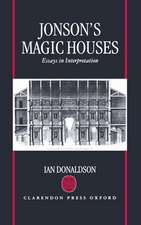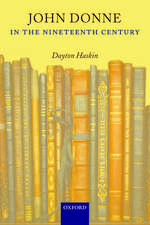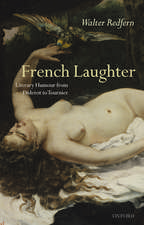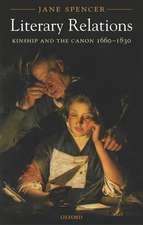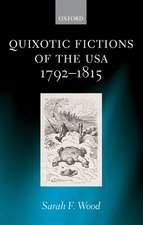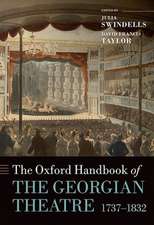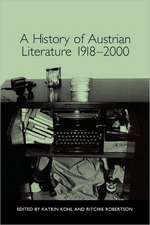Mock-Epic Poetry from Pope to Heine
Autor Ritchie Robertsonen Limba Engleză Hardback – 11 noi 2009
Preț: 498.30 lei
Preț vechi: 904.38 lei
-45% Nou
Puncte Express: 747
Preț estimativ în valută:
95.38€ • 103.64$ • 80.17£
95.38€ • 103.64$ • 80.17£
Carte tipărită la comandă
Livrare economică 11-17 aprilie
Preluare comenzi: 021 569.72.76
Specificații
ISBN-13: 9780199571581
ISBN-10: 0199571589
Pagini: 466
Dimensiuni: 162 x 241 x 32 mm
Greutate: 0.85 kg
Editura: OUP OXFORD
Colecția OUP Oxford
Locul publicării:Oxford, United Kingdom
ISBN-10: 0199571589
Pagini: 466
Dimensiuni: 162 x 241 x 32 mm
Greutate: 0.85 kg
Editura: OUP OXFORD
Colecția OUP Oxford
Locul publicării:Oxford, United Kingdom
Recenzii
Wonderful: lucid, intelligent, and wide-ranging... Mock-Epic Poetry: from Pope to Heine is unlike most academic studies, and that is a good thing. Because Robertson's frame of reference is so broad, he patiently builds up a portrait of each text, offering bibliographical and critical contexts before proceeding to analysis. This adds to the book's bulk, but makes it a pleasure to read - and it means that it will be accessible to students of English and Classics as well as Modern Languages. It has two outstanding qualities. First, it makes an eloquent case for the interconnectedness of European literatures in the later eighteenth century. Second, it reminds readers of the pleasures of intertextuality.
Robertson's command of his vast range of primary sources is astonishing, as is the extent of his scholarly work on the associated questions he explores.
Robertson's command of his vast range of primary sources is astonishing, as is the extent of his scholarly work on the associated questions he explores.
Notă biografică
Ritchie Robertson was born in Nairn, Scotland. He studied at Edinburgh University and Oxford University; held posts at Lincoln College, Oxford (1979-84) and Downing College, Cambridge (1984-89) before being appointed to his present post as Fellow and Tutor in German at St John's College, Oxford, in 1989. He is co-editor of the yearbook Austrian Studies (1990-99), and has been Germanic editor of the Modern Language Review since 2000. He was elected a Fellow of the British Academy in 2004.
